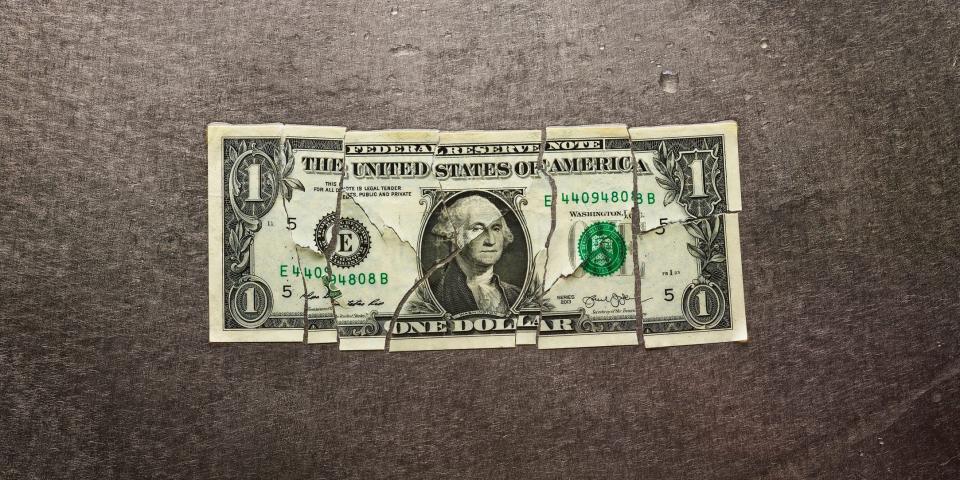The US can do one big thing to weaken the dollar and put pressure on China

The US could use a simple tool to strategically weaken the US dollar for economic gains.
That tool, while difficult, is to get the US budget under control.
A reduction in the federal deficit would help tame inflation and weaken the US dollar.
The US dollar has been surprisingly resilient in recent months.
It's risen against 15 of 16 major currencies so far in 2024, and posted year-to-date gains of more than 5% against the Japanese yen and Swiss franc. It's currently at levels decisively above peaks seen in 2015, 2016, and 2020.
But while a strong dollar is great news for Americans looking to save some money during a vacation to Europe, it usually means economic pain for international companies and America's trading partners.
It could also push allied nations to favor other currencies, which could spark a true risk of de-dollarization that isn't spearheaded by America's foes.
That's why a weakening US dollar is music to the ears of American corporations, trade partners, and policymakers. This is especially so because it gives the country a fighting chance at beating China in an everlasting economic battle, without imposing costly tariffs that often sting American consumers the most.
And the US has a simple, effective, yet potentially difficult-to-use tool at its disposal to weaken the US dollar, tame inflationary pressures, and open the door for more collaboration with its trading partners: balance the federal budget.
While that might sound like a pipe dream, politically speaking at least, it could lead to a lot of knock-on benefits that favor the US over the long-term and put more economic pressure on China.
A balanced budget would help reduce the lopsided flows of dollar reserves and foreign currencies, and it could even open the door for a level of cooperation between allies not seen since the Plaza Accord in 1985. That agreement devalued the US dollar, stabilized trade with Japan, and helped reduce the US trade deficit.
A recent article in The Economist suggested that such a move today would help the US work once more with its allies in Asia and Europe to strengthen their currencies against the dollar, essentially creating a united front that could help America reduce its soaring trade deficits while also hurt China's economic position.
Whereas China has responded to US tariffs by devaluing its yuan, helping the country circumvent some of the trade penalties enacted by former President Donald Trump in 2018, they'd have more painful decisions to make if they wanted to fight back against a weaker dollar via a currency war.
With the upcoming 2024 elections in view, both Presidential candidates would cheer a weaker US dollar. A balanced Federal budget would help them achieve that scenario without putting the economy at risk.
Read the original article on Business Insider
